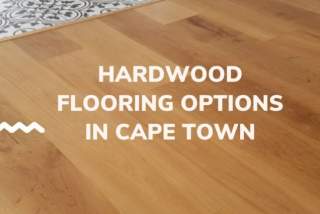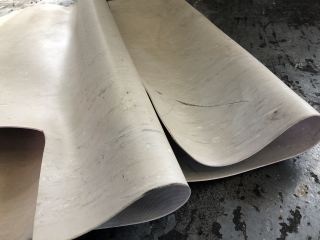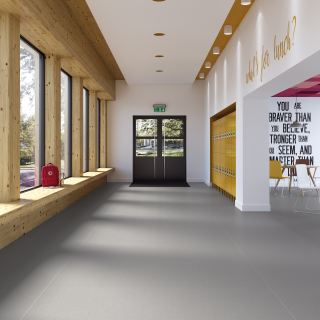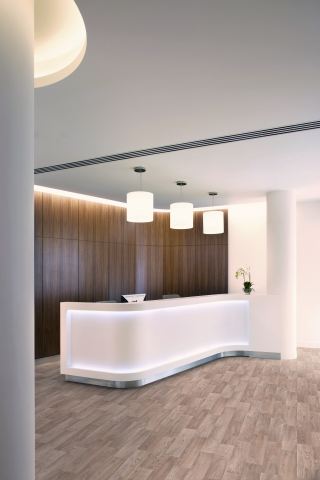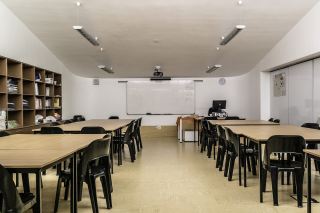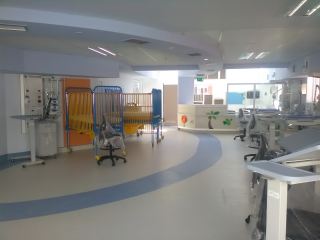Hardwood Flooring Options in Cape Town
Wood is a common choice as a flooring material due to its aesthetic appeal and refurbishment abilities. Hardwood floors, also known as Engineered wooden flooring, are available in an oiled or lacquered finish.
What is Engineered Wood Flooring?
Engineered wood is genuine wooden flooring that is built in layers and bonded together for strength. The top hardwood layer shows all the natural characteristics and beauty of the selected wood species. Every piece of hardwood is different as the varieties of grain, holes, and colour comes into play, depending on the wood species, adding character to your wooden flooring.
An Oiled or Lacquered Finish?
Oiled Wood Flooring has a natural look and enables the colour of the wood to deepen over the years. An oiled finish goes deep into the heart of the wood and provides not only protection on the surface but into the core too. This gives maximum protection to the wood. Unlike a lacquered finish, when the top layer of oil finish is worn away, there is still a level of protection underneath.
A lacquer finish is ideal in a room that experiences heavy traffic. The benefit to a lacquered wood finish is that it becomes somewhat water-resistant. However, the one downside is that it tends to show scratches more easily than an oiled floor.
Hardwood floors can be re-sanded, and the duration between sanding intervals will depend on the thickness of the wear layer. When the floor finally ends up looking tired and worn, the best course of action is usually a re-sand and refinish it. It is always recommended that the services of a professional be used when carrying out this refinishing.
Lacquer comes in high gloss, gloss and matt finishes, although even a matt finish tends to have a bit of gloss to it. Should you decide on a lacquered finish for your floor, it is necessary to be aware of the floor’s shine.
Advantages of Hardwood Flooring
- Engineered wooden floors are dimensionally more stable than solid wooden floors.
- Stable construction results in minimal shrinkage or warping.
- Suitable for use over underfloor heating.
- Engineered flooring can be used on wooden subfloors or dry concrete slabs.
- It can be nailed, glued or laid as a “floating floor” on underlay.
- Engineered floors can be sanded and refinished/stained if desired.
- Hardwood flooring increases the value of your home.
- Engineered floors are straightforward to install.
TLC Flooring supplies a wide range of engineered wooden flooring, also known as hardwood flooring, for both residential and commercial use. These ranges include a Premium, Prime, Classic and Rustic range, which vary in colour, knots, cracks and character. Read more about them here.
Premium is the best grade of hardwood flooring available and is very uniform in colour and style, while Prime offers a more natural character with slightly more knots and a light brown fill. The Classic grade has consistent knots with a dark brown fill and a clean style, while Rustic offers plenty of country character with its consistent knots and dark-filled cracks.
TLC Flooring offers competitive pricing and a five-year guarantee on all their installations carried out by an experienced fitting team that provides a quality service. They service areas in and around Cape Town. Contact TLC for a competitive quotation.
7.5 TONS OF VINYL FLOOR OFF-CUTS COLLECTED THANKS TO INDUSTRY COLLABORATION
Polyflor SA and Innovative Pvc Compounds (IPC), both members of the Southern African Vinyls Association(SAVA), joined hands recently to ensure that 7.5 tons of vinyl floor off-cuts are collected, of which 6 tons were recycled, following an installation at the Dr Pixley Ka Isaka Seme Memorial Hospital – a new R3bn hospital in KwaMashu that is scheduled to open its doors by December 2019.
About the project
The 500-bed regional hospital named in the honour of Dr Pixley Ka Isaka Seme, one of the first black lawyers in South Africa and a founding member of the African National Congress (ANC), is the largest hospital currently in development in South Africa. It is situated near Bridge City Mall (a new mixed-use precinct that serves as a business, commercial and transportation hub for the eThekwini Municipality) and will be amongst the largest public healthcare facilities in the country once it is completed. The new development forms part of the KwaZulu-Natal Department of Health Hospital Revitalisation Programme. It will provide 1.5 million people living in KwaMashu, Inanda, Ntuzuma and surrounding communities in the northern Durban catchment area with a full spectrum of medical services.
The power of networking
Polyflor SA, one of South Africa’s leading suppliers of vinyl sheeting and luxury vinyl tiles to the healthcare-, retail-, education- and commercial industries, was awarded the contract to supply more than 35 000 m² of vinyl sheeting at the hospital. Polyflor SA launched the country’s only official programme that recycles vinyl sheeting off-cuts generated during installations in 2016. The company’s contractors are given specially branded recycling bags in which they place the off-cuts, in order to be returned to the company’s head office in Sebenza, Johannesburg, for weighing and recording and collection by recyclers. “Upon hearing of our involvement in the project through our networking at SAVA and given the fact that it was literally taking place on their doorstep, IPC offered to assist us with the recycling of the off-cuts at their premises,” comments Tandy Coleman, CEO of Polyflor SA. “Their involvement in this project made the entire process considerably shorter and easier to manage”.
Stepping out and stepping up
IPC is a family-run vinyl compounds supplier based in Durban. Established in 2010, they are one of the PVC compounders who supply their products nationwide, as well as internationally, for the manufacturing of footwear, safety shoes, gumboots, wire coating, floor tiles, electrical and plumbing fittings, for the moulding and extrusion industries. “Although recycling of vinyl products is not a core focus of our business, we do encourage our customers to allow us to reprocess any, if not all, of their off-cuts in view of maintaining a sustainable environment. Vinyl floor off-cuts are a valuable source of clean, top quality material that holds high recycling value. For this reason, we were eager to assist Polyflor by collecting, reprocessing and recycling the material at our facility in Phoenix Industrial Park in Durban, before supplying it back into the industry as compounds for the footwear sector”, explains Mubeen Siddiqi, CEO and Director at IPC.
State of PVC recycling in SA
Adri Spangenberg, CEO of the Southern African Vinyls Association, applauded both companies for their pro-active approach and supporting the industry to reach its recycling targets. https://www.pressportal.co.za/2938150d-64a9-4ae9-90e7-2b2c64a393a4" width="213" height="140" />“PVC recycling in South Africa has seen 16.4 % year-on-year growth in during 2018, whilst the virgin consumption increased 2.3 % in the same period. 20 778 tons of PVC were recycled in South Africa, of which 80 % was flexible and 20 % rigid vinyl products. Because the recycling process does not measurably decrease the chain length of PVC molecules, vinyl products can be recycled repeatedly up to 8 times - depending on the application. For this reason, the vinyls industry has been working very hard to boost collection of waste, optimise recycling technologies and boost the percentage of recyclate in new products,” she says. Footwear continues to be the biggest market application (43%) for recycled, flexible PVC, followed by pipes (23%), flooring and cables (both 12%). Other applications for recycled PVC include speed bumps, traffic cones, gum boots, vehicle heel mats and rubber edging used around pet bowls.
Plans for future collaboration
Both Polyflor SA and IPC agree that the project was a huge success and that they are eager to collaborate on similar projects in future. “It is Polyflor’s vision to minimise carbon emissions as much as possible, as well as being socially and economically responsible. Partnering with IPC on this recycling project enabled us to deliver an additional service to the client that was greatly appreciated. It also saved us time, money and kept our carbon footprint as small as possible because the materials did not have to be transported up to Gauteng for reprocessing. It is also hugely encouraging to know that the valuable material was effectively recycled and continued to add value in its second life!”, Tandy concludes.
POLYFLOR LAUNCHES QUICKLAY PUR
Reduced downtime and less subfloor preparation with the adhesive-free, loose lay safety flooring for heavy traffic areas
The Polysafe QuickLay PUR Collection is the latest offering to be launched in South Africa by Polyflor SA, specialists in vinyl flooring and wall protection solutions.
Adhesive-free, easy to install and slip resistant
Polysafe QuickLay is a loose lay safety flooring designed for adhesive-free installation and is the perfect solution for busy commercial environments in need of a quick turnaround and where sustainable slip resistance is a priority. According to Tandy Coleman, CEO of Polyflor SA, Polysafe QuickLay can be used as a temporary or permanent floor covering and achieves the same performance and durability as other Polysafe flooring collections, but with the added benefit of being adhesive-free.
“This is a very practical choice for contractors and specifiers alike and was developed by Polyflor in response to a growing need for loose lay flooring solutions that would save installation time, eliminate the need for adhesives and make future replacement easier, yet still offer sustainable slip resistance required from a safety floor,” she says.
Vinyl floors that can be installed on newly laid concrete floors
When installing QuickLay, subfloor preparation is considerably reduced as it can be laid directly over a variety of existing floor coverings, including new concrete substrates of up to 97% RH. The specially studded formulated Studded Emboss works as a barrier and allows moisture to escape from the subfloor. The QuickLay system simply works by applying the specially designed QuickLay tape provided around the perimeter of the room, underneath seams and doorways, securing the flooring in place. After thermal welding the installation is suitable for immediate traffic. (As an added value offer, Polyflor is supplying 2 rolls (25 linear metres each) of QuickLay Tape free of charge with each full roll of QuickLay purchased, ensuring there is enough tape supplied as standard, to fit almost all installations! If necessary, further tape can be purchased at an additional cost.)The adhesive-free installation also promotes excellent indoor air quality and low VOC emissions, which leaves a healthy environment that can be used straight away.
Dementia friendly
The Polysafe Quicklay PUR Collection is available in a tonal colour bank of 12 contemporary shades with a matt surface finish, making it suitable for dementia friendly environments. The University of Stirling’s Dementia Services Development Centre (DSDC) – a UK-based international centre of knowledge and expertise dedicated to improving the lives of people living with dementia - has accredited the full collection with its plain and tonal decoration.
Conclusion
Suitable for use in heavy commercial and residential environments in need of a quick turnaround and where sustainable slip resistance is a priority, the Polysafe QuickLay features the exclusive Polysafe PUR reinforcement for optimum appearance retention and superior cleaning benefits. more 2/…quicklay two It can be used in commercial, residential and educational areas (front or back of house) and is ideal for circulation and heavy traffic areas where there are risks of water spillage and other contaminants, such as corridors, dining areas and cafes, classrooms, hospital wards, clinics, laundry and sluice rooms, nursing homes, washrooms, WCs, bar serveries, food preparation areas, kitchens and canteens. It conforms to EN 13845 and 50,000 cycles abrasion test and sustainable wet slip resistance is assured throughout the guaranteed life of the product.
For more information, visit www.polyflor.co.za
INVESTING IN GOOD QUALITY VINYL FLOORING TO MINIMISE NOISE
It is often said that architecture is music frozen in time. But when a building reverberates with the sounds of voices, footfalls of people walking or merely day-to-day activities in such a way that it hinders work performance or impacts on the well-being of employees working in it, serious steps need to be taken to dial down the noise levels.
Noise is created when sound energy is transmitted either by impact or by air. In a public or work space where impact sound is often created as a result of footsteps, slamming of doors or dragging of furniture. It can easily be transmitted through the entire building structure and impact all the employees working in a building or sharing a workspace. Other common sources of noise include traffic, weather, plumbing, duct-borne noise or noise entering the building via open windows.
“Noise can have an extremely detrimental effect in the workplace and can even significantly impact an individual’s well-being and hinder work performance,” says Tandy Coleman, CEO of Polyflor SA, specialists in vinyl flooring and wall protection solutions.
“For this reason, acoustics, sound levels and sound insulation that effectively reduced the noise levels within new and refurbished commercial interiors, are increasingly becoming a primary area of focus for builders, contractors and architects,” she explains.
Sound levels and sound insulation values are expressed in decibels (dB). In recent years, more and more countries have begun introducing new legislation aimed at addressing resistance to the passage of sound. In the UK for example, building regulations are in place that stipulate that a suitable floor covering should have a weighted reduction in impact sound pressure level of not less that 17dB when measured in accordance with EN ISO 140-8 and calculated in accordance with EN ISO 717-2.
Fortunately, the negative impact sound can greatly be reduced by professional acoustic planning at the outset of a project and with the expert assistance of a specialist acoustician. Aspects such as acoustic ceiling and wall panels, fabrics, textiles, plants and mindful space planning can all contribute towards reducing noise.
“We have seen a surge in demand by architects specifying acoustic floor coverings for use in their commercial buildings owing to the fact that they are able to greatly aid in creating a peaceful, quieter working environment. By selecting and correctly installing reputable acoustic floor coverings, they are able to meet the industry standards of a minimum reduction level of at least 17dB, and in some cases even exceed reduction levels of 19dB,” Tandy explains.
Polyflor offers a number of acoustic options within its heterogeneous flooring collection. These allow designers to combine aesthetically pleasing designs with robust functionality in a variety of different spaces such as: entrance and reception areas, lobbies, corridors and hallways, meeting rooms, hotel rooms, auditoriums, classrooms and lecture halls, libraries and high-density residential developments.“
Acoustic flooring is an excellent choice for large spaces, as it reduces echoes and creates ambience in a room. They are able to reduce impact sound at source as well as provide the additional benefits of aesthetics, performance, hygiene and durability,” Tandy explains.
Available in a wide variety of different colours, designs and finishes, Polyflor’s three main acoustic flooring ranges are Silentflor PUR, Acoustix Forest Fx PUR, Designatex PUR and Secura PUR. Customers are spoilt for choice when it comes to colours and designs options - ranging from wood effect (Aged Oak, Autumn Rain, Blond Oak, Bronzed Pine, Burnt Orange, Classic Limed Ash) to concrete (Light Grey Concrete, Light Industrial Concrete) to stone finishes (Onyx, Zinc etc).
“These floors expertly meet the demands of today’s commercial interiors whilst offering unique sound reduction capabilities, aesthetics and a hassle-free maintenance for years to come,” Tandy concludes.
For more information, visit www.polyflor.co.za/flooring-products/acoustic
Wynberg Girls’ High School installs Polyflor LVTs in Innovative New Expansion Project
Polyflor SA recently assisted Cape Town-based Noero Architects with an installation of a 624 m² floor at Wynberg Girls’ High School (WGHS) as part of an innovative expansion project at the school. Founded in 1884, this beautiful and historic school is situated in the shadows of Table Mountain has once again proven why it is renowned for offering excellent facilities and its ability to embrace change.
We need to grow… but where to?
According to Uno Pereira of Noero Architects, the school needed to add additional classrooms in order to meet the demands of a growing school. Previously, they were told that the only way to build eight new classrooms was to add an extra floor onto the two side existing banks of classrooms. This, however, would obliterate the view of the Table Mountain range from the courtyard and paralyze the use of eight classrooms below the new classrooms during construction, creating havoc with the school’s timetable.
Noero Architects suggested an alternative to this option. After much deliberation, they presented a novel solution by creating a “street” between existing classrooms and the new ones on either side of the court that allowed for the adding of two new wings of four classrooms. Each wing was placed to either side of the court at ground level.
Classrooms for the future
“The school’s headmaster, Shirley Harding, wanted us to start imagining what the classroom of the future would be like. To this end, she allowed us to hold a series of workshops with the teachers and students to understand how the classroom environment and teaching methods have changed and what new possibilities await us as we embrace new technologies and rethink how learning can happen in these new spaces,” Uno explains.
The newly built classrooms were covered with earth for environmental and climatic reasons – resulting in a new inclined planted courtyard and which offers even better views of the mountain range. The increased size of the courtyard and the shape itself allows the school to use the space for a whole new range of uses, such as concerts and performances, or a communal space which can be used by a number of different groups of pupils of varying sizes and ages.
The right floor to do the job
Fortunately, the task of deciding which floor covering to use to not only complement the interiors, but also be able to withstand the rigorous demands of school life in the newly completed classrooms, posed to be less of a challenge.
“We selected Polyflor based on the excellent support they had given us during previous projects that we had worked on together, especially the UWC Sports Centre”, Uno explains. He adds that the requirements and guidelines set out by the Department of Education specified the use of vinyl tiles as mandatory floor finish of choice for WGHS.
“We had a limited palette of colors to work with due to maintenance requirements from the school. With the interior walls being painted white and the polycarbonate sheeting used for the skylights diffusing the light and dulling most colors, we needed a warm color on the floors to make the interiors more vibrant. For this reason, we selected Polyflor’s XLPU 2mm in Citrine, which gave us a modern look that was warm, yet practical and worked well with the school’s colours,” he observes.
Understanding the specific flooring demands of educational environments
Commenting on the success of the project, Polyflor SA Chief Executive Officer Tandy Coleman says they were very excited to work on the project. “Because my father and the Chairman of Polyflor SA, Denver Coleman, is an Old Boy of Wynberg Boys’ High School, we have a strong connection with the WGHS. We also have in-depth knowledge of the particular demands that the school environment puts on floors and how to best meet these needs with our floors,” Tandy says, explaining that educational establishments, in their very nature, are busy and challenging environments that require a high performing floor.
“The primary function of a floor finish is to provide a durable, safe, clean, attractive and affordable surface. The specific type of flooring selected is often a complex decision that is influenced by various factors, such as the age of the children, function of the space, activity levels and the intensity of footfall. Durability and ease of maintenance are general concerns throughout teaching and classroom facilities. However, floors should always enhance the learning environment,” Tandy explains. She emphasises that the overwhelming advantage of modern day vinyl flooring is that it meets all the performance, design and flexibility requirements and contributes to a superior learning environment.
“Today’s school floors are bright, colourful and cheerful without sacrificing on practicality or ease of maintenance. For this reason, we have seen an unprecedented increase in the amount of vinyl floors that are being installed in schools targeting all age groups over the past decade. The successful installation at WGHS has once again demonstrated the importance of understanding what the needs of the learners and the teachers are, and trying to find a floor that will best fit between those creating the learning environment, those who will use the learning environment and those providing the products for the learning environment,” she concludes.
For more information, visit www.polyflor.co.za or www.noeroarchitects.com
Polyflor welcomes new Sales Consultant
Polyflor SA is proud to welcome Sipho Zwane as a new sales consultant based at its Gauteng head office.
Zwane grew up in Orlando West, Soweto and attended both his primary and secondary school in Eldorado Park. He completed his Bachelor of Business Administration at CIDA City Campus, majoring in Marketing Strategy and Human Resources.
“I have a vibrant personality and enjoy rewarding challenges. I’m like a seed that grows remarkably well in the right soil. For this reason, I’m very excited about my new position, the new environment and the new team. There is a positive and vibrant energy at Polyflor, and it is great to be part of a group of flooring specialists that share the same values regarding customer service and excellence”, Sipho divulged.
Prior to joining the Polyflor team, Sipho was employed as a sales consultant for Barloworld Equipment in Polokwane. In his new position, Sipho says he will be responsible for establishing and maintaining mutually beneficial relationships with clients in order to achieve and exceed targets - for both Polyflor and the client.
Contact details for Sipho Zwane:
Email: This email address is being protected from spambots. You need JavaScript enabled to view it.
Landline: 011 609 3500
Cell no: 0828874667
Web address: www.polyflor.co.za
MORE THAN 4 TONNES OF VINYL FLOORING DIVERTED FROM LANDFILL THROUGH NEW RECYCLING INITIATIVE
Polyflor SA has recycled more than 4 tonnes of vinyl floor off-cuts since it launched the initiative at the end of last year, thereby allowing the local PVC industry to move forward with its sustainability goals as set out in SAVA’s (Southern African Vinyls Association) Product Stewardship Commitment.
According to Tandy Coleman, CEO of Polyflor SA, the company’s initiative to recycle off cuts generated during the installation of vinyl floors, has been widely welcomed and well-supported by installers. “Diverting these off-cuts from landfill and sending them off to recyclers for use in the manufacture of rigid and flexible products such as pipes, cables, shoe soles and car mats, is of great environmental significance. Good quality, clean materials that are void of any glues or substances can now be used to create new products with a useful service life instead of ending up in landfill or polluting the atmosphere,” Coleman says.
According to SAVA CEO, Delanie Bezuidenhout, PVC manufacturers and consumers increasingly aim for the sustainable use of the product through all stages of its life cycle. “The promulgation of the National Environmental Management: Waste Act has placed great emphasis on recycling and the reduction of materials to landfill. To this end, SAVA and its members endeavour to create and participate in many community, industry and government programmes which are designed to ensure appropriate management of PVC products at the end-of-life. We applaud this initiative of Polyflor that not only helps to increase the awareness of the fact that PVC is recyclable, but also delivers tangible and impressive result in a very short time frame when it comes to collecting and recycling end-of-life PVC,” she says.
Polyflor contractors receive specially branded bags for their vinyl floor off-cuts, which are then returned to the Polyflor SA head office for weighing and collection by recyclers. “Our aim is to increase our recycling rate by 100% % by the end of 2017 which will have a significant impact on SAVA’s aim of increasing the recycling of post-consumer PVC-P to 15000 mt per annum, and the recycling of post-consumer PVC-U to 10000 mt per annum,” Tandy concludes.
For more information, visit www.polyflor.co.za and www.savinyls.co.za
Polyflor Partners With Carte Blanche To Makes A Difference At Sebokeng Hospital
Local flooring company Polyflor SA was once again in the privileged position to assist Carte Blanche with their “Making a Difference” campaign by donating a 780 m2 vinyl floor for use in the creation of an Infant High Care Ward at the Sebokeng Hospital. According to Tandy Coleman, CEO of Polyflor SA, this was the 8th year that the company has been involved in this campaign which aims to equip and renovate Paediatric Operating Theatres, ICUs and High Care Wards in selected state academic hospitals throughout South Africa.
“Supplying hospitals and healthcare facilities with top quality and specialist vinyl flooring solutions is one of our areas of expertise. For this reason we were very excited to partner with the Carte Blanche Making a Difference Trust the first time they approached us for a corporate sponsorship many years ago. We saw it as an ideal opportunity to give something back to the community and to help make a lasting and tangible difference where it was most needed,” Tandy says.
Background to the Carte Blanche Making a Difference Campaign
Carte Blanche is South Africa's longest running investigative journalism television programme. Eight years ago, it launched its “Making a Difference Trust”, which has since then raised well over R115 million for assisting paediatric units in government hospitals across the country. Academic hospitals are intentionally targeted as beneficiaries to ensure that future doctors can be trained at these facilities that serve large numbers of the uninsured paediatric population.
Sebokeng Hospital
The Sebokeng hospital is an 800 bed, peri-urban, regional hospital situated in Sedibeng (south of Johannesburg) that historically served a population of well over 1 million inhabitants. In recent years, the hospital has had to adjust to the growing demands of a rapidly increasing population, as job seekers move to the area in the hope of finding employment. High mortality is a challenge facing the hospital on a daily basis, as the residents of the Sedibeng District continue to face diseases such HIV and TB amongst a host of other ailments. Malnutrition in patients from the area is often a compromising factor in achieving successful health outcomes.
With the only Neonatal Unit in the area, Sebokeng Hospital delivers vitally important service for the whole district. This unit however, can only attend to children up to 28 days of age. Although designed for 36 babies, it has 60 infants at any given. Historically, babies over 28 days old could not be attended to here, and needed to be referred to the adult ICU or high care ward if a bed was available.
In response to this crisis, the Carte Blanche Making a Difference Trust (MAD), together with donor South 32, sought to address the critical demand for beds and equipment for infants over the age of 28 days old and children up to the age of 6 years, by way of creating an Infant High Care Ward at Sebokeng Hospital. Longstanding partner on several of MAD’s infrastructural revamps – Sakhiwo Health Solutions – were appointed as the MAD Trust’s Developers to overhaul a third of the Ward 3 bungalow, and to create a modern facility capable of responding to the needs of the children from community. The Hospital Design Group was tasked with the architectural design and coordination of all the specialist elements required to turn this project into a reality.
Polyflor’s Involvement
Rudolf Roos of the Hospital Design Group was the architect in charge of the renovation project, and he selected Polyflor’s Homogeneous Mystique sheeting for the unit. A modern-looking vinyl floor that was aesthetically pleasing was high on the project coordinator’s wish list. “Modern healthcare design is about creating homely, relaxed environments for patients, staff and visitors. The choice of floor covering can have a major impact on the ‘feel’ of a hospital. Vinyl flooring not only looks beautiful, but also offers one of the best environmentally sustainable options in flooring. Because it comes in a sheet form, it provides a hygienic, impervious surface which is critical in the healthcare environment,” Tandy explains.
The installation of the donated floor by Polyflor was facilitated by Turner Pierson at a special rate. “Looking at the finished project and seeing what a difference this project has made, we are immensely proud of being associated with a group of South Africa’s leading businesses who believe in the future of our country and don’t shy away from the opportunity to do good,” Tandy concludes.
For more information about Polyflor SA, please visit www.polyflor.co.za

